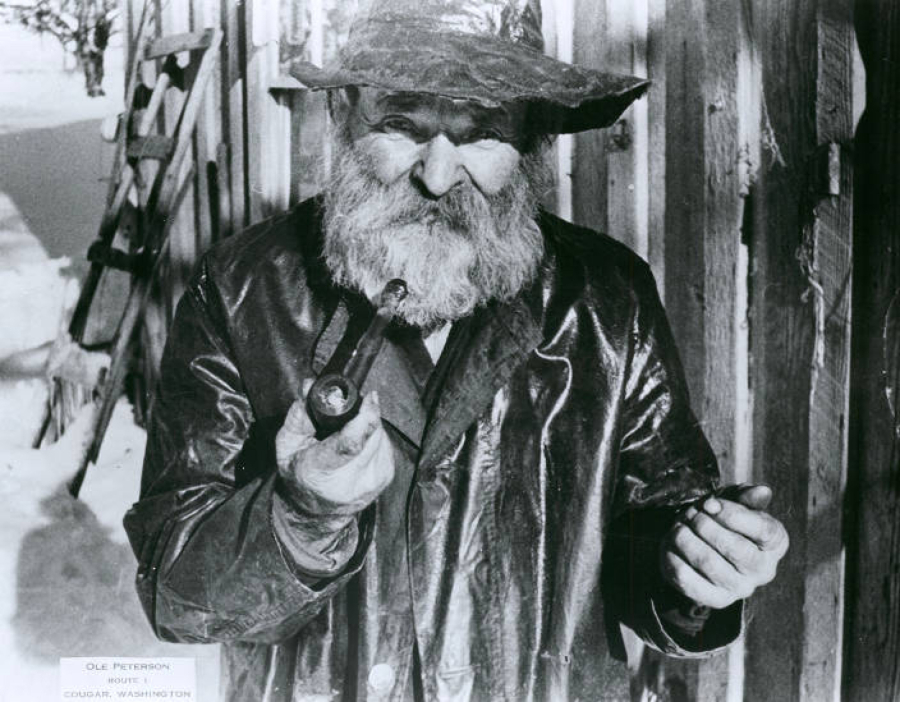For a pipe smoker, his winter beard looked like a fire hazard. When Ole Peterson (1867-1953) got out his rusty sheep shears and cleared away his scraggly chin-bristle leaving a solitary mustache, Indigenous residents and local loggers knew spring had arrived. He boasted about whacking enough beard away each spring to stuff a mattress.
Peterson left his Iowa farm and traveled West to escape the 1893 depression. Distressed by the election of a Democratic president, Grover Cleveland, he declared until right-minded Republicans regained control of the country, he’d stay gone.
Reaching Woodland, he stopped, tramped east through untracked wilderness, and eventually filed an 80-acre claim near Skamania County’s Swift Dam. In time, his homestead included a two-story house, a garden, an orchard and a colony of bees. Peterson dwelt there only going back east for his mother’s death in 1926, coincidentally when Republican Calvin Coolidge held the highest office.
Journalist Leverett Richards wrote early Woodlanders swore Peterson toted a sheet metal stove filled with a bag of spuds on his back. The tale is likely the first drumbeat in a series forming Peterson’s legend.
An outrageous iconoclast, Peterson spun his solitary and rebellious nature into stories. He claimed Indigenous residents saved him from starvation when they taught him how to snag salmon, something he’d not learned in Iowa. In 1902, the Yacolt Burn somehow skipped over his valley but left him fearing fire.
Although he talked big, he was a small man standing about 5-foot, 4-inches tall. Some say it was his hat and multiple layers of clothes that made him appear larger. Supposedly, a missing chunk on his left ear was either caused by a falling tree or a cougar. He often told of finding a cougar whose right-front leg was ripped off by a bear. So he outfitted the cougar with a wooden prosthesis and returned it to the woods. There, according to Peterson, the cougar beat the offending bear to death with its woody stump. Peterson had a knack for Davy Crocket-style backwoods exaggeration.
When authorities arrested Peterson for making moonshine, D. Elwood Caples, a Vancouver lawyer and Democratic committee chair, got the charges dismissed, saying Peterson only shared his liquid lightning with friends. Overcoming his distaste of Democrats, Peterson formed a lasting friendship with Caples. He also acquired a taste for store-bought whiskey over moonshine.
Just before his death, Peterson left a note asking a neighbor to buy some supplies: “The river is running low (supplies) and my panter milk (whiskey) is allee drying up so I am sending another check for another shipment.”
In the end, fire did get Peterson. In 1953, a passing school bus driver saw his cabin afire. She called Peterson out, but he ran back in. He came back out severely burned. Rushed to Memorial Hospital in Vancouver, he never recovered but lingered a few days. Once, while awake, he grinned, saying, “I’d a come here sooner if I had known they had such pretty nurses.”
Martin Middlewood is editor of the Clark County Historical Society Annual. Reach him at ClarkCoHist@gmail.com.



